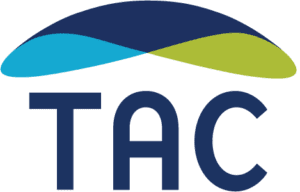The opioid epidemic is causing profound harm to communities and individuals across the nation, and has emerged as one of the most pressing public health crises in recent memory. Government leaders are working diligently to develop effective solutions at the federal, state, and local levels, and have achieved a significant investment of resources in prevention, harm reduction, and treatment and recovery — each of which is a pillar of the U.S. Department of Health and Human Services Overdose Prevention Strategy — yet tragically, overdose fatalities continue to rise. After a brief decline in 2018, these deaths have climbed in each subsequent year, as substance use disorders have been exacerbated by the anxiety, isolation, and reduced access to resources caused by COVID-19. Provisional data from the Centers for Disease Control and Prevention (CDC) suggests that another 109,940 people in the U.S. died from a drug overdose in the 12-month period ending in January 2023.
Methadone, the most powerful agonist medication available for opioid use disorders, can by law be provided only in federally certified Opioid Treatment Programs (OTPs). Years of rigid federal and state regulations, stigma associated with methadone use, and the isolation of OTPs from the rest of the treatment continuum have hindered access to this life-saving medication — while at the same time limiting the capacity of OTPs to provide comprehensive care to the individuals they serve.
Even as efforts to combat the crisis take shape, the overdose epidemic itself continues to evolve. Initial strategies that successfully reduced prescription opioid use are not effective in addressing powerful synthetic opioids like fentanyl and its analogs, which by 2021 were contributing to nearly 88% of opioid overdose deaths. Our efforts must recognize that access to methadone is an essential component of the treatment continuum.
A Landmark Change
On February 1 of this year, the federal government took bold action to increase access to this life-saving medication. A new “final rule” published by the Substance Abuse and Mental Health Services Administration substantially revises regulations governing OTPs for the first time in over 20 years, incorporating decades’ worth of practice-based evidence. The revised regulations allow greater flexibility in the provision of methadone medication take-home doses and in the use of telehealth to prescribe methadone; broaden admission criteria; and expand the definition of practitioners who can dispense and prescribe methadone. These changes can open the door to a patient-centered care approach that is more focused on engaging individuals and serving them in a meaningful way.
This federal action acknowledges the need to improve access to methadone, and gives OTPs tools they have long needed. The onus is now on state and county behavioral health authorities, as well as OTP providers, to take full advantage of this opportunity by modernizing their own regulations, policies, oversight, and protocols.
Taking Action
In September 2023, the Technical Assistance Collaborative published Transforming the Role of Opioid Treatment Programs, Opportunities, Considerations, and Choices in a Time of Crisis — a blueprint for leaders who are invested in helping the OTP delivery system to evolve. Experts Rebecca Boss, Mady Chalk, Laura Conrad, Colette Croze, and Lamar Polk provide a comprehensive analysis of current challenges faced by OTPs and propose transformative strategies to redefine these providers’ vital role in combating opioid addiction.
Focus Areas for Transformation:
- Comprehensive Care: In order to address the complex nature of opioid addiction, OTPs can and should evolve beyond medication-based approaches by integrating mental health services, counseling, and social support into the care they provide.
- Expanded Access to Treatment: Removing barriers to treatment — for instance, by offering extended hours, same-day admission, interim maintenance options, and mobile methadone units — can ensure that people are helped without delay when they are ready to engage.
- Community Engagement and Education: Both government leaders and OTP providers have a responsibility to reach out to communities with campaigns to reduce stigma and promote a better understanding of opioid use disorder.
- Data-Driven Decisions: For OTPs to become more effective, the service delivery system must adopt evidence-based practices and use data to inform decisions, improve outcomes, and refine treatment strategies.
- Policy Reform: In addition to programmatic changes, policymakers are now challenged to create an environment that supports the transformation of OTPs and broadens the effort to address the opioid crisis.
Transforming the Role of Opioid Treatment Programs is a valuable resource for policymakers, health care professionals, and community leaders. With the steps outlined in this resource, OTPs can become dynamic and effective entities, capable of addressing the multifaceted challenges posed by opioid addiction and contributing to a more resilient and responsive health care system.



